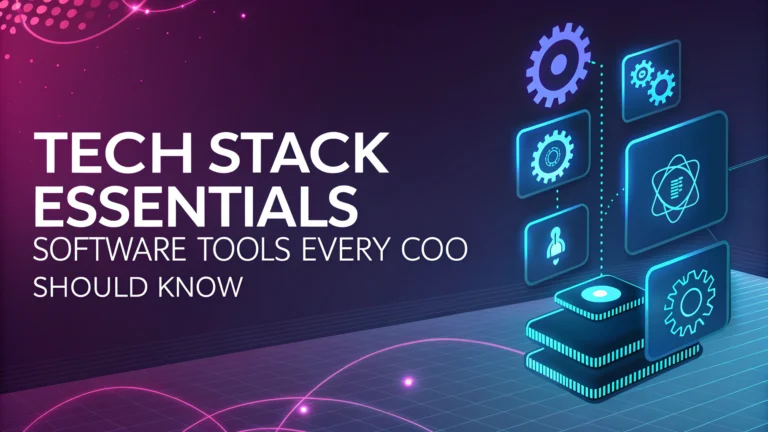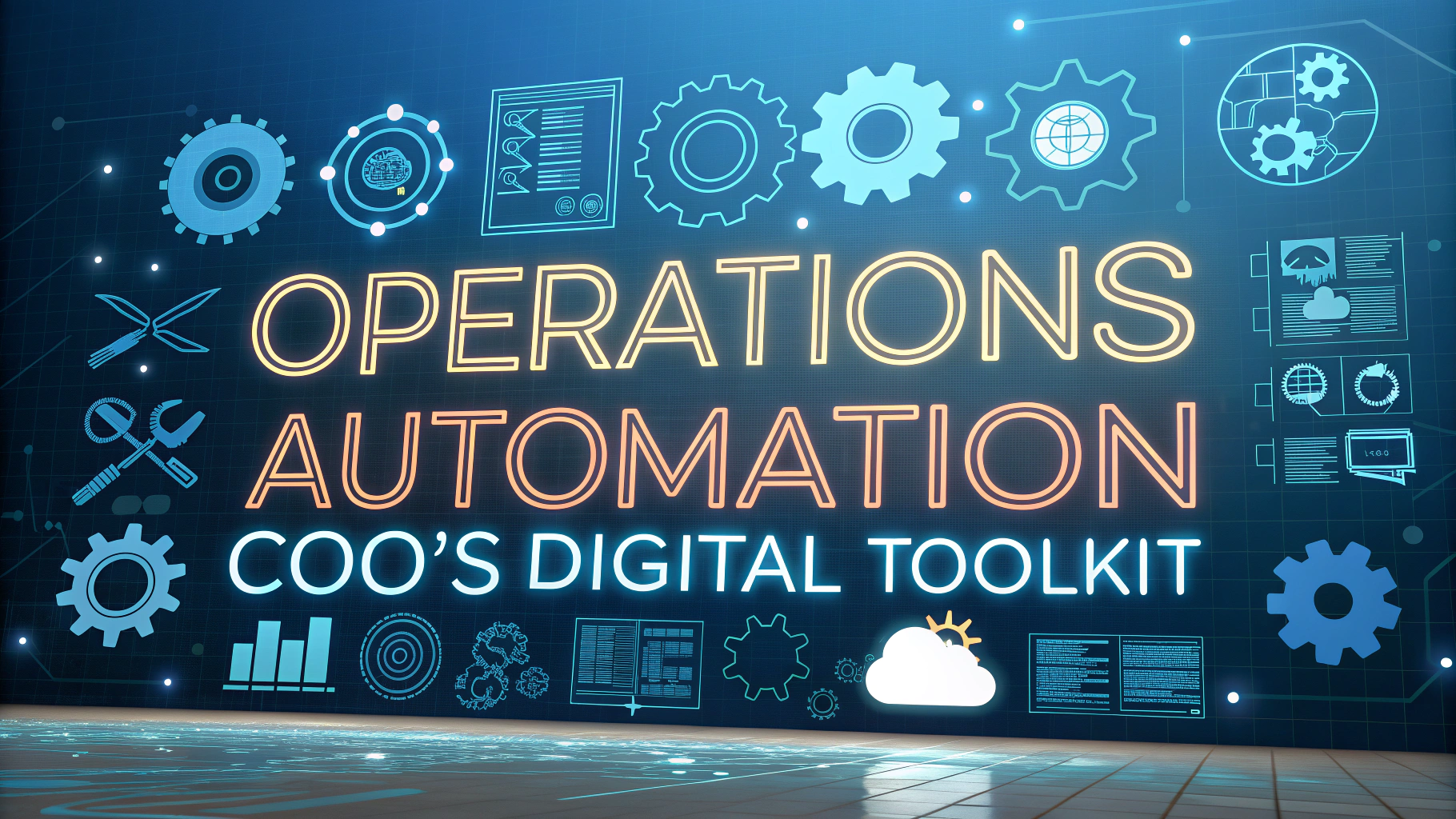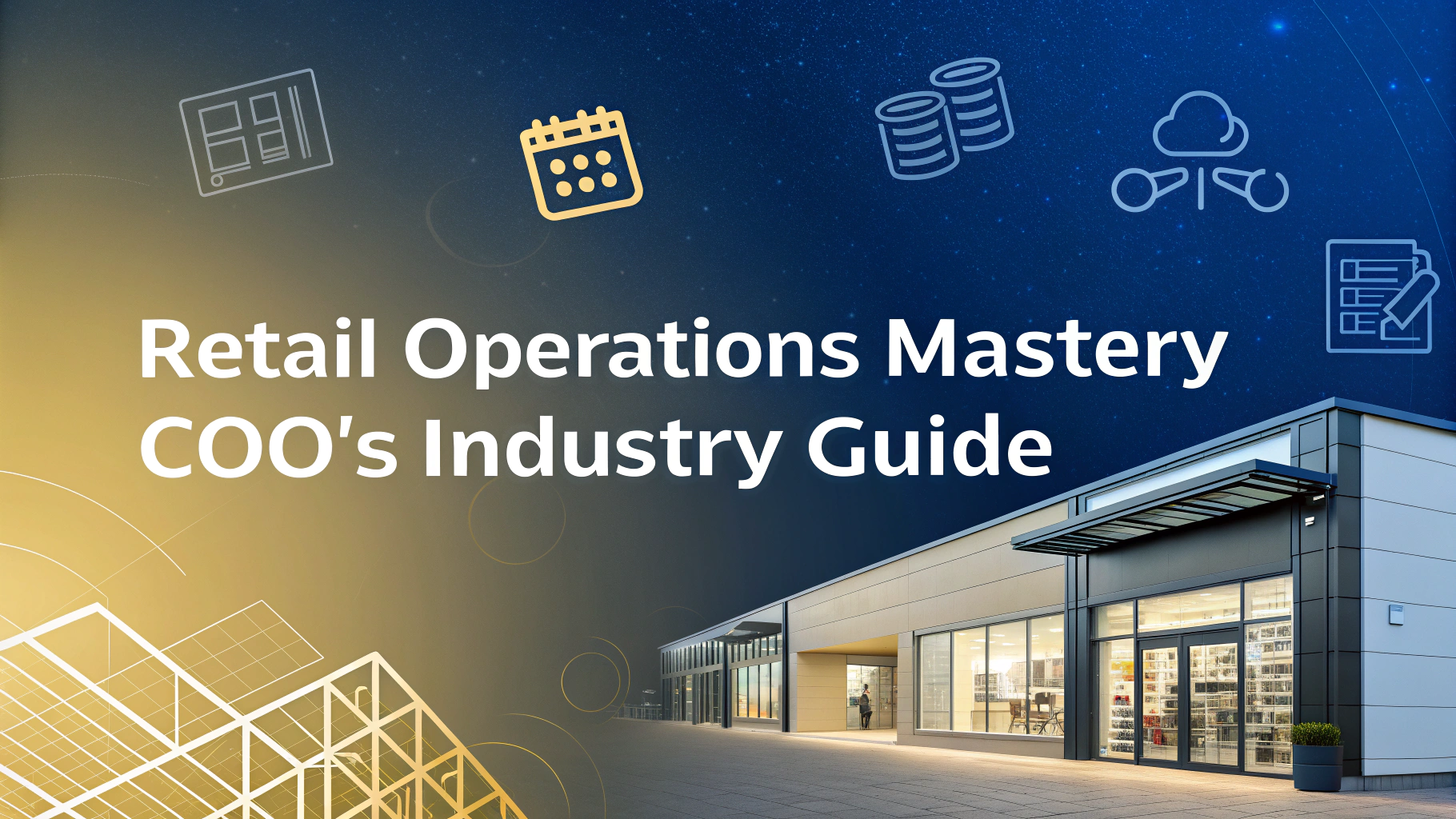Managing modern operations requires a strong grasp of technology, and COOs need specific software tools to streamline processes and drive efficiency.
The right tech stack empowers operational leaders to make data-driven decisions, automate routine tasks, and maintain clear visibility across the organization.
This quick guide covers the essential software tools that help COOs optimize performance, reduce costs, and scale operations effectively.
Enterprise Resource Planning (ERP) Systems
- SAP S/4HANA – Comprehensive solution for large enterprises, offering real-time analytics and AI-powered insights
- Oracle NetSuite – Cloud-based ERP suitable for mid-sized companies, starting at $999/month
- Microsoft Dynamics 365 – Flexible ERP with strong integration with Office 365 and Power BI
Project Management Tools
- Monday.com – Visual project management platform with customizable workflows
- Asana – Task management tool ideal for cross-functional team coordination
- Jira – Robust project tracking software, particularly strong for tech teams
Business Intelligence & Analytics
- Tableau – Data visualization tool for creating interactive dashboards
- Power BI – Microsoft’s analytics solution with strong Excel integration
- Looker – Modern BI platform with embedded analytics capabilities
Process Automation Tools
- UiPath – Enterprise-grade RPA platform for automating repetitive tasks
- Zapier – Web automation tool connecting 3000+ apps without coding
- Automation Anywhere – Cloud-native automation platform with built-in AI
Communication & Collaboration
- Slack – Team messaging platform with extensive integration options
- Microsoft Teams – Unified communication platform with video conferencing
- Zoom – Video conferencing tool with reliable performance
Document Management
- Box – Enterprise-level secure file sharing and storage
- DocuSign – Electronic signature and agreement cloud platform
- SharePoint – Document management and storage system with strong Microsoft integration
Financial Management
- Quickbooks Enterprise – Accounting software with inventory management
- Xero – Cloud-based accounting platform for small to medium businesses
- Sage Intacct – Financial management software with strong reporting capabilities
Next Steps for Implementation
Start by evaluating your current tech stack against operational goals and identify gaps in functionality or efficiency.
Request demos from vendors and involve key stakeholders in the selection process to ensure tool adoption.
Consider integration capabilities when selecting new tools to create a connected ecosystem that supports your operational workflow.
| Tool Category | Starting Price Range | Implementation Time |
|---|---|---|
| ERP Systems | $999 – $2500/month | 3-6 months |
| Project Management | $10 – $25/user/month | 2-4 weeks |
| BI Tools | $70 – $500/user/month | 1-3 months |
Change Management & Training
- LMS Platforms – Implement learning management systems for tool training
- Documentation – Create standardized processes and user guides
- Support Teams – Establish dedicated support for technical issues
Security & Compliance
- Identity Management – Implement SSO and access controls across tools
- Data Protection – Ensure GDPR, HIPAA, and industry-specific compliance
- Audit Tools – Monitor and track system usage and security events
Integration & API Management
- MuleSoft – Enterprise integration platform for connecting applications
- Dell Boomi – Cloud-native integration platform as a service (iPaaS)
- Workato – Intelligent automation and integration platform
Cost Optimization
- License Management – Regular audit of user licenses and usage patterns
- Vendor Consolidation – Evaluate overlapping tools and consolidate where possible
- ROI Tracking – Measure and monitor return on software investments
Building Your Technology Foundation
Success in operational leadership increasingly depends on selecting and implementing the right technology stack. Focus on solutions that align with your organization’s size, industry, and growth trajectory while maintaining flexibility for future scaling.
Remember that technology implementation is an ongoing process. Regular reviews and updates ensure your tools continue to serve your operational needs effectively while delivering maximum value to the organization.
Prioritize integration capabilities and user adoption to create a cohesive ecosystem that enhances productivity and provides actionable insights for strategic decision-making.
FAQs
- What are the essential project management tools a COO should be familiar with?
Monday.com, Asana, Jira, and Trello are essential project management tools. These platforms help track workflows, assign tasks, and monitor project progress across departments. - Which business intelligence (BI) tools are crucial for a COO’s decision-making process?
Tableau, Power BI, and Looker are critical BI tools that help visualize data, create dashboards, and generate actionable insights for strategic planning and operational efficiency. - What enterprise resource planning (ERP) systems should a COO understand?
SAP, Oracle ERP Cloud, and NetSuite are prominent ERP systems that integrate core business processes, including finance, HR, supply chain, and manufacturing operations. - Which communication and collaboration tools are essential for modern operations management?
Slack, Microsoft Teams, Zoom, and Google Workspace are fundamental for internal communication, virtual meetings, and document collaboration across organizations. - What analytics tools should COOs use for operational performance tracking?
Google Analytics, Mixpanel, and Amplitude help track digital performance, while specialized tools like Salesforce Analytics provide customer relationship insights. - Which cybersecurity tools should a COO be aware of?
Okta for identity management, Crowdstrike for endpoint protection, and Splunk for security information and event management (SIEM) are essential for maintaining operational security. - What financial management software should COOs be familiar with?
QuickBooks Enterprise, Xero, and FreshBooks for accounting, along with specialized tools like Stripe or Square for payment processing and revenue management. - Which supply chain management tools are important for COOs to know?
Manhattan Associates, JDA Software, and SAP SCM for comprehensive supply chain management, inventory tracking, and logistics optimization. - What HR management systems should COOs understand?
Workday, BambooHR, and ADP for managing employee data, payroll, benefits, and workforce planning. - Which customer relationship management (CRM) tools are essential?
Salesforce, HubSpot, and Microsoft Dynamics 365 for managing customer interactions, sales pipelines, and marketing campaigns.








